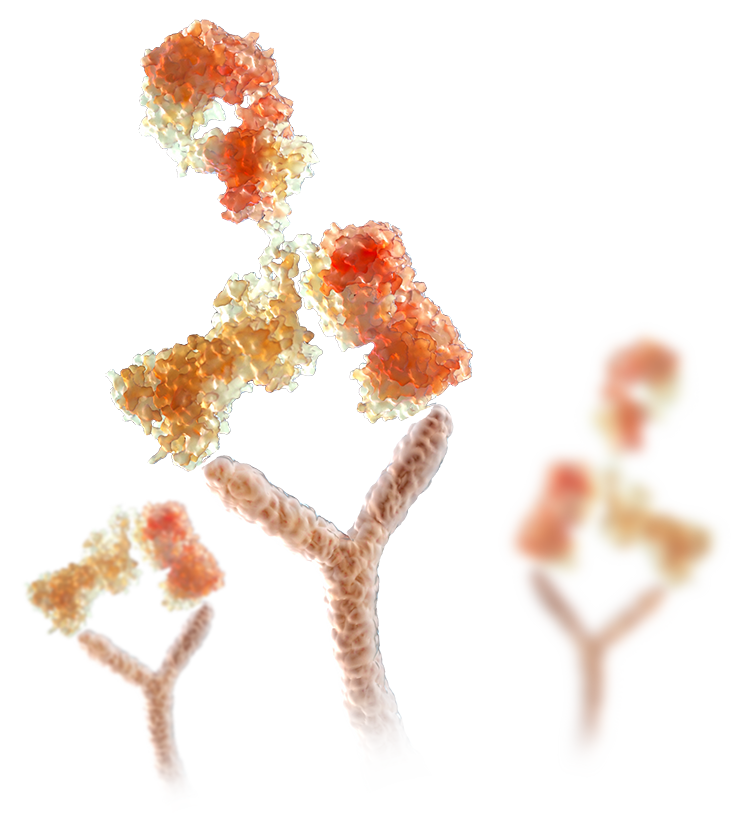Flow Cytometry Application for
Biotherapeutic Development


As your drug development partner, you have access to our biotherapeutic team with expertise in flow cytometry applications. Our flow cytometry experts provide the data you need to efficiently make informed decisions that move your therapeutic to the next milestone. We specialize in customized flow cytometry panels in early-phase preclinical and clinical trial research and are equipped to process samples from a wide range of matrices, from fresh to cryopreserved.
Our Services can be Applied to an Array of Key Applications Which Include:
Drug Discovery and Development

-
Pharmacodynamics: Determines the effects of drugs on specific cellular functions, such as cell cycle progression, apoptosis, or signaling pathways
-
Biomarker Identification: Identifies and quantifies cellular biomarkers associated with disease states or drug responses
Safety and Toxicology

-
Apoptosis & Cell Death Assays: Assessing potential toxic effects of drugs or compounds on various cell types
-
Immune Response Monitoring: Detection of immune responses against biologics or other therapeutic agents
Immunology and Immuno-Oncology

-
Immunophenotyping: Characterization of immune cells based on the expression of specific cell surface or intracellular markers
-
Cell Function Assays: Measurement of cytokine production, proliferation, cytotoxicity, and other immune cell functions
-
Chimeric Antigen Receptor T-cell (CAR-T), CAR NK-T Therapies: Phenotyping, activation status, and expansion monitoring of modified T cells in CAR-T therapies
Cell Therapy and Regenerative Medicine

-
Cell Sorting: For therapies that involve modifying cells ex vivo and reintroducing them, flow cytometry, especially FACS (fluorescence-activated cell sorting), is crucial in selecting the desired cell population
-
Stem Cell Analysis: Characterizing and quantifying stem cell populations, assessing their differentiation status, and monitoring their therapeutic effects
Flow Cytometry Team
At Inotiv, we have a dedicated team of experienced, world-class PhD level scientists who have led biotherapeutic drug development programs with flow cytometry support from discovery through regulated preclinical milestones. We use our years of experience across multiple types of animal models, matrices, and therapeutic areas to help you foresee and navigate potential hurdles keeping your program on track. As your partner, we are committed to providing you with the right solution and insights needed to drive your program forward.
For clinical work, our partner laboratory, Synexa, are leaders in the field with decades of experience. Their labs are supported by robust and proven technology platforms, harmonized across their strategically located labs to ensure effective transfer of methods and protocols with a focus on specialized training and in-depth method validation, thus supporting their clients with quality, scientifically-sound, and clinically relevant data.
Frequently Asked Questions (FAQs) for Flow Cytometry Applications
How does flow cytometry contribute to drug safety assessment?
Flow cytometry is a valuable tool in drug safety evaluation as it allows for the assessment of various cellular parameters, including cell viability, apoptosis, cell cycle, and immune cell function. It can be used to study the effects of drugs on different cell types, providing insights into potential toxicity or therapeutic benefits.
How does flow cytometry complement other techniques in drug safety assessment?
Flow cytometry complements other techniques by providing high-throughput, multiparametric analysis at the single-cell level. Integration with other assays such as microscopy, molecular biology techniques, and in vivo studies enhances the comprehensive evaluation of drug safety.
How can flow cytometry be applied to study immune cell function in drug safety assessment?
Flow cytometry allows researchers to analyze immune cell populations, activation markers, and functional assays such as cytokine production. This is a valuable technique for assessing the potential immunotoxicity of drugs and understanding their impact on the immune system.
What are some common flow cytometry assays used in drug safety studies?
Common flow cytometry assays in drug safety evaluation include cell viability assays, apoptosis assays, cell cycle analysis, and immunophenotyping. These assays help assess the impact of drugs on cellular processes and identify potential adverse effects.
How can flow cytometry be used to study drug-induced apoptosis?
Flow cytometry can detect apoptosis by analyzing changes in cell size, membrane permeability, and DNA content. Annexin V and propidium iodide staining are commonly used to differentiate between live, apoptotic, and necrotic cells, providing valuable information on drug-induced cell death mechanisms.
What considerations should be considered when using flow cytometry for drug safety assessment?
Considerations include selecting appropriate cell types and matrix, optimizing staining protocols, validating reagents, and ensuring proper controls. Understanding the mechanisms of drug action and potential cellular responses are essential for designing relevant flow cytometry assays.
How can flow cytometry aid in the detection of drug-induced immunosuppression or immunostimulation?
Flow cytometry can assess changes in immune cell populations, activation markers, and cytokine production. This information is crucial for evaluating the immunomodulatory effects of drugs, including potential immunosuppression or stimulation.
Can flow cytometry be used to study drug-induced genotoxicity?
Flow cytometry can be employed to assess genotoxicity by assessing various DNA damage markers, DNA content, and cell cycle distribution. Techniques such as the micronucleus assay can also be integrated into flow cytometry-based assays for genotoxicity evaluation. To learn more about our genetic toxicology offering, click here.
What types of toxicity can be assessed using flow cytometry?
Flow cytometry can be used to assess several types of toxicity including cytotoxicity, genotoxicity, immunotoxicity, and apoptosis. By analyzing specific markers and parameters, researchers can gain information on the impact of drugs on different cellular processes.
What are the regulatory considerations for using flow cytometry in drug safety studies?
Regulatory considerations include validation of methods, documentation of procedures, adherence to Good Laboratory Practice (GLP) guidelines, and providing clear and reproducible data. Collaboration with regulatory agencies can help ensure compliance with industry standards.



